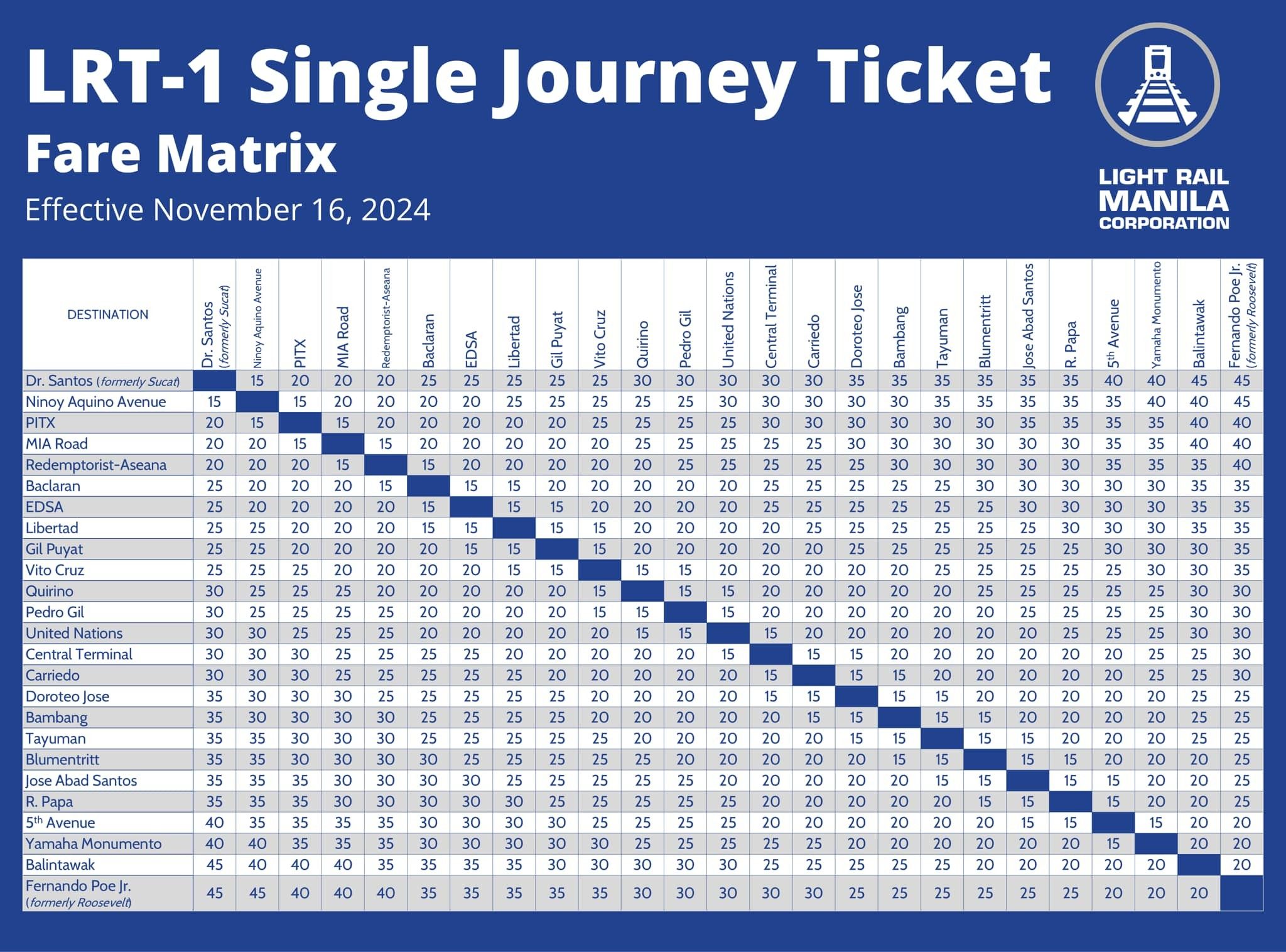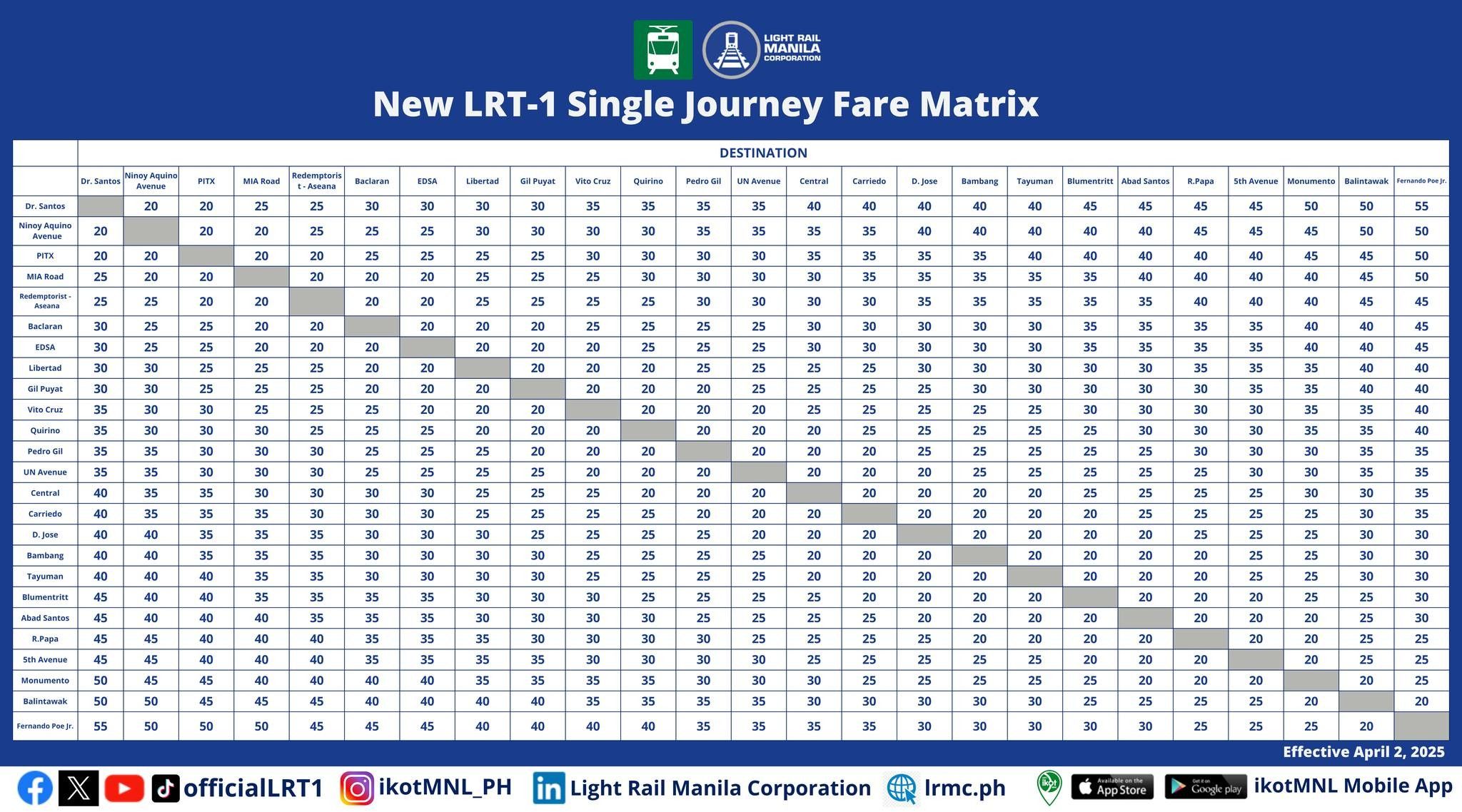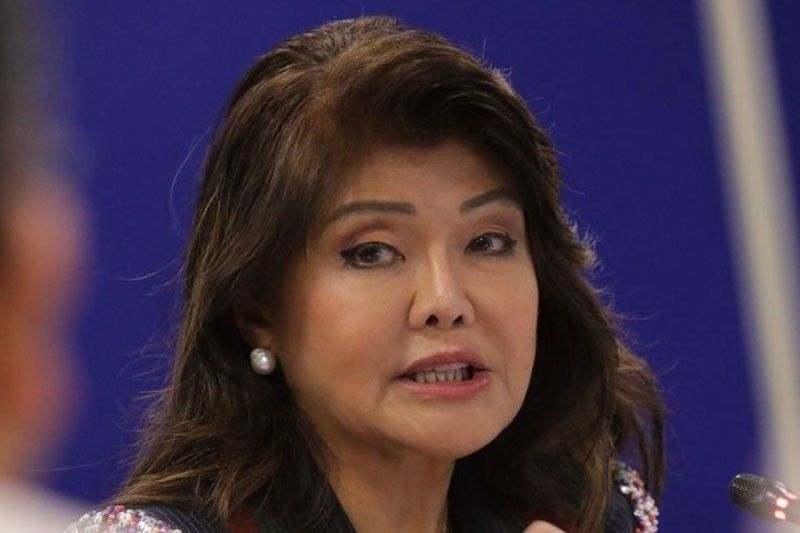
Upgrade to High-Speed Internet for only ₱1499/month!
Enjoy up to 100 Mbps fiber broadband, perfect for browsing, streaming, and gaming.
Visit Suniway.ph to learn
Undated photo of LRT-1 trains
Interaksyon / Bernard Testa
MANILA, Philippines — Starting April 2, passengers riding the LRT-1 will see fare hikes ranging from P20 to P55, an increase of P5 to P10 from the previous fare. Is there a possibility to undo this fare increase?
Various civil society groups challenged the Department of Transportation's (DoTR) approval of the fare hike, submitting an appeal to President Ferdinand “Bongbong” Marcos Jr. on Monday, March 31, in hopes of reversing the decision.
On February 18, the DoTR announced the approved fare increase, raising the minimum fare from P15 to P20 and the maximum fare from P45 to P55 for a single journey ticket, with the hike set to take effect on April 2.
“An added burden to commuters, the proposed fare increase... imposes substantial financial burdens on the approximately half a million daily commuters of LRT-1, most of whom are students and workers,” the petition read.
Among the petitioners were PISTON president Mody Floranda, labor leader Jerome Adonis, Bayan president Renato Reyes Jr., and urban poor leader Mimi Doringo. Commuter group PARA (Advocates for Inclusive Transport) and youth group Anakbayan also joined the appeal.
The appellants contend that the DoTR's failed to provide a clear breakdown of the fare adjustment based on distance, questioning the “financial necessity” for such a hike.
They also argued that the DoTR’s contractual obligation to increase fares by 10.25% every two years does not justify the hike, especially without sufficient explanation.
The Light Rail Transit Line 1 or LRT-1, which transports commuters from Caloocan, Quezon City, Manila and Parañaque, is operated by the Light Rail Manila Corporation (LRMC) under a concession agreement with the government.
This 2014 agreement extends until 2046 and includes provisions for infrastructure improvements like the extension from Baclaran to Cavite, as part of the Philippine Development Plan.
If the fare hike is not granted, the appellants argue, the government should cover any additional costs required to sustain the operations of the transit system.
Since 2014, if fares have increased by 10.25% every two years, commuters would be paying about 160% more than they did in 2014. This means that fares could nearly triple by 2046..
The government, however, previously rejected the LRMC’s petitions for fare hikes in 2016, 2018, and 2020.
Here is a comparison between the old and new LRT-1 fares.

LRT-1 fare matrix for single journey tickets as of Nov. 16, 2024.
LRMC via Facebook

LRT-1 fare matrix for single journey tickets to take effect on April 2, 2025.
LRMC via Facebook
What the appeal seeks
The memorandum of appeal outlines four specific actions it requests from the president in response to the fare hike:
- Reject and suspend the approval of the DOTR’s latest fare hike.
- Terminate the LRTA-LRMC concession agreement, citing concerns over the risk of public debt from continuous fare hikes and its alleged unconstitutionality.
- Reevaluate privatization policies, emphasizing that mass transit systems should prioritize public service over profit.
- Require the DOTR and LRMC to disclose financial statements and revenue data, enabling the public to verify the fare-setting process.
While they recognize that contractual agreements generally serve as binding law between the parties involved, the appellants said the principle should only apply when such agreements grant private rights and responsibilities.
Commuters' concerns, however, are not limited to fares on trains alone.
The issue also extends to jeepney fare hikes, currently under deliberation by stakeholders and the Land Transportation Franchising and Regulatory Board, with a P2 increase still being discussed.

 1 day ago
6
1 day ago
6



